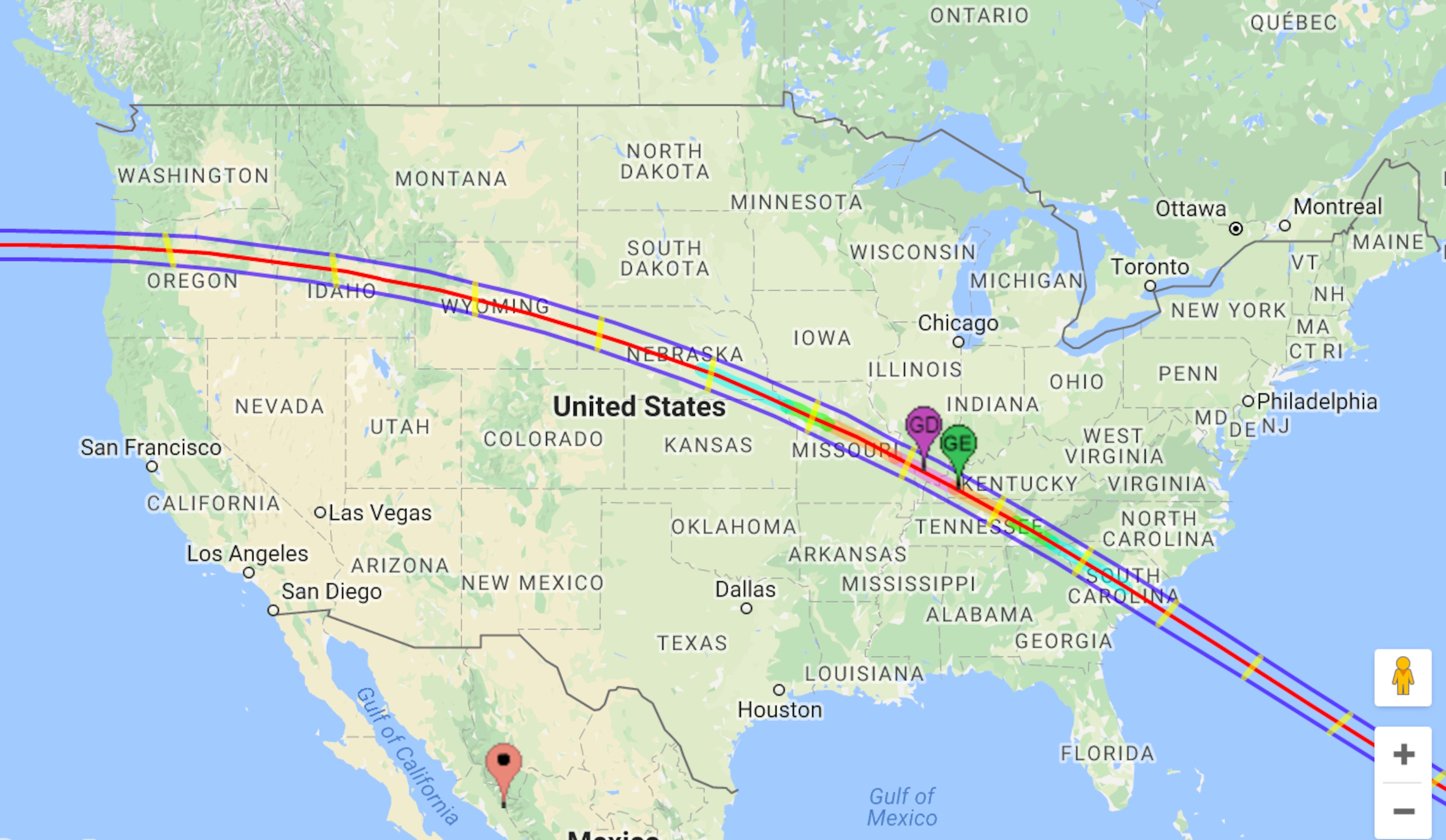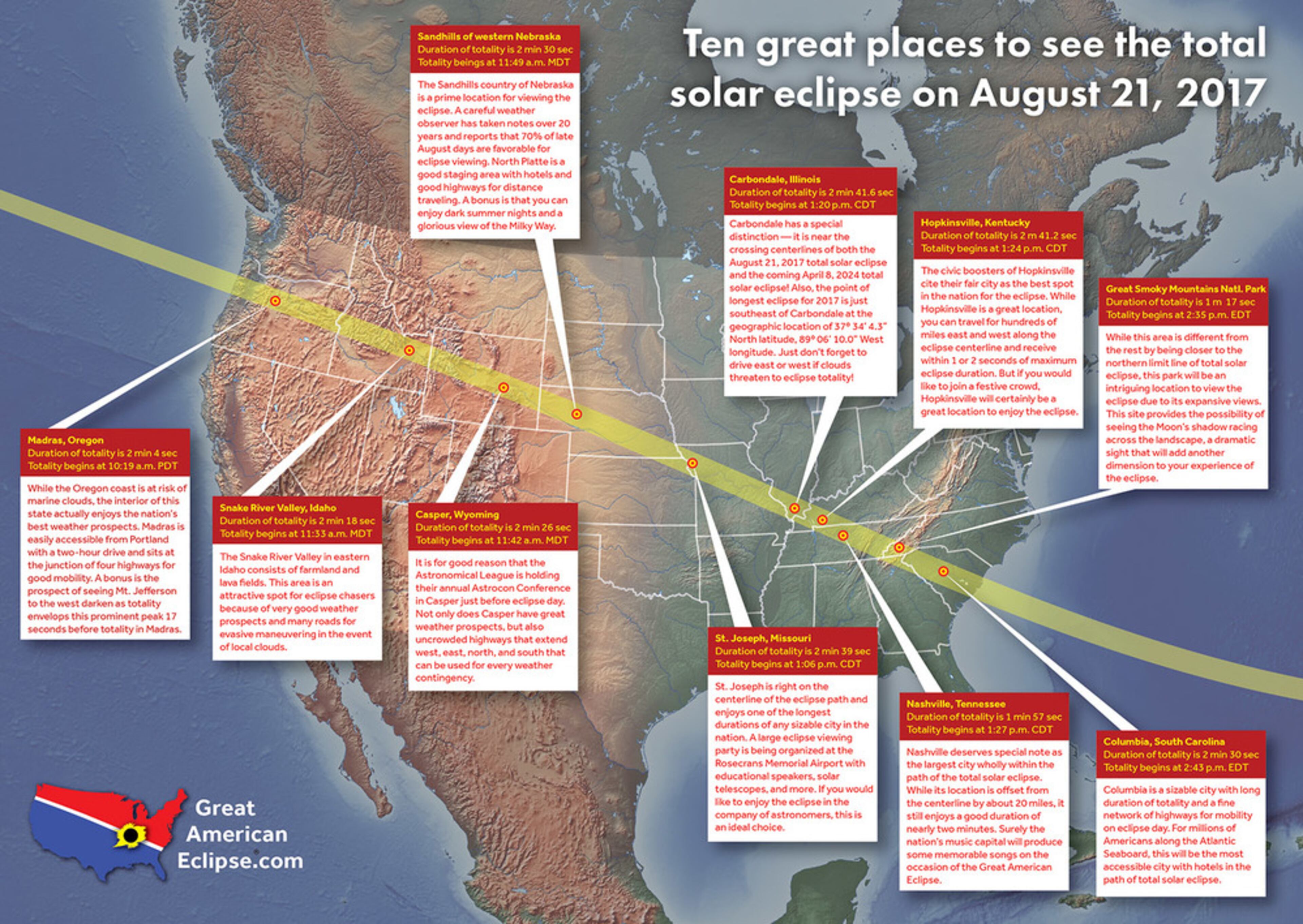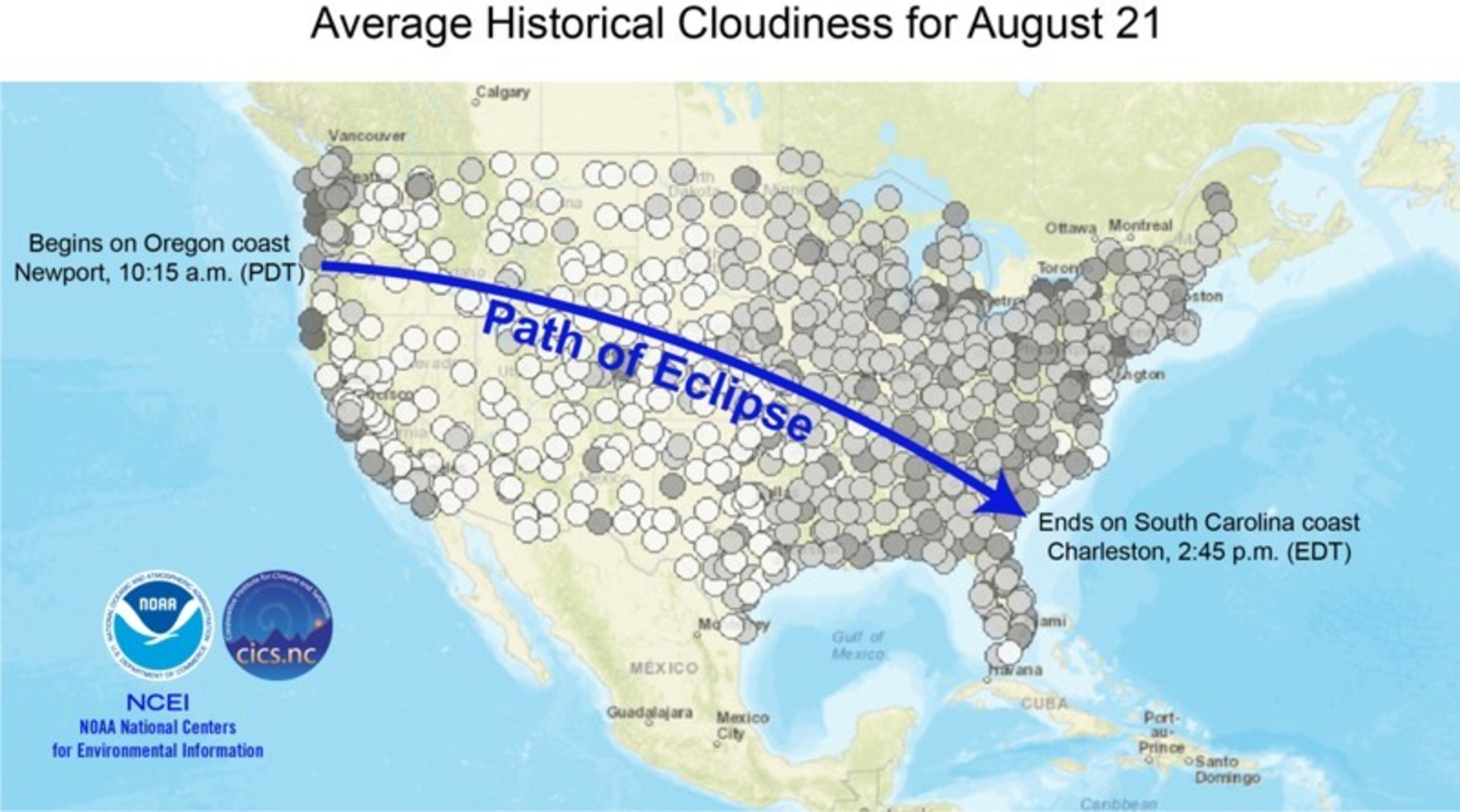How Georgians can watch the rare total solar eclipse this Monday
This story has been updated.
It's the final countdown to the first total solar eclipse to cross the United States coast to coast in nearly 100 years.
» RELATED: The ultimate guide to the once-in-a-lifetime total solar eclipse this August
This August, the sun, the moon and planet Earth will all align as Americans witness the country's first total solar eclipse in 38 years.
The Aug. 21 eclipse, dubbed the Great American Eclipse by astronomers, will also mark the first time the phenomenon has occurred from coast-to-coast in nearly 100 years, giving spectators in Oregon, Idaho, Wyoming, Nebraska, Kansas, Missouri, Illinois, Kentucky, Tennessee, North Carolina, Georgia and South Carolina the chance to get a load of the eclipse in all of its totality.
» RELATED: Solar eclipse checklist: Everything you need to pack, bring with you on eclipse day
According to NASA, the center-line path of totality — where the moon completely blocks the sun, the earth goes dark and the sun's corona shimmers in the blackened sky — will stretch from Salem, Oregon, to Charleston, South Carolina, and will last up to 2 minutes and 41.6 seconds.

Spectators outside the center-line path will observe a two- to three-hour partial solar eclipse.
That includes residents in metro Atlanta, which is between 40-80 miles outside the center-line path.
Find out what your sky will look like on Aug. 21 using the Google simulator or Vox eclipse tool, the latter of which will also tell you how far northeast you need to travel to see a total solar eclipse.
To help Georgians prepare for the monumental celestial spectacle expected to attract space junkies from all over the world, we’ve put together some of the best ways you can catch the can’t-miss marvel of the year.
Drive to Georgia’s best eclipse watch spots:
If you want to be within the centerline path of the total solar eclipse in Georgia, which only grazes the northeast corner of the state, your best bet is to make your way to Rabun County, about two hours north of metro Atlanta.
There, the total solar eclipse will begin at 2:35 p.m. and last for 2 minutes and 40 seconds.
Rabun County is also hosting an array of events to commemorate the rare eclipse, the AJC previously reported. Some events include bluegrass at Tallulah Falls, a golf tournament at Sky Valley Country Club, a lecture series with astronomers and a 5K run.
On Aug. 21, spectators can join Georgia State University astronomers in the OutASight Total Solar Eclipse Viewing Party, where jumbotrons linked to NASA will help guide the event.
» More Rabun County total solar eclipse events and information at explorerabun.com/total-eclipse.
All the Georgia cities where you’ll be able to see a total eclipse
1. Baldwin
2. Clayton
3. Gumlog
4. McCaysville
6. Blairsville
7. Cleveland
8. Hartwell
9. Morganton
10. Tiger
11. Blue Ridge
12. Cornelia
13. Helen
14. Rabun Gap
15. Toccoa
16. Carnesville
17. Demorest
18. Hiawassee
19. Royston
20. Clarkesville
21. Dillard
More about the 21 cities listed above.
Events at Georgia state parks

State parks all over Georgia are hosting watch parties and other events for the total solar eclipse on Aug. 21.
Here’s a list of participating parks and their events from the Georgia Department of Natural Resources:
Fort King George State Historic Site
Best road trips from Georgia

According to GreatAmericanEclipse.com, there are ten prime hotspots within the centerline path of the total solar eclipse.
Three of the areas could make for an easy summer day trip from Atlanta.
» RELATED: Sun-eating demons? 7 bizarre (but brilliant) myths and superstitions about solar eclipses
1. Great Smoky Mountains National Park
Drive time from Atlanta: 3-3.5 hours
Time of eclipse: 2:35 p.m.
Totality time: 1 minute, 17 seconds
According to the official Smoky Mountains National Park page, tickets for viewing from the Clingmans Dome are sold out, but sites like Cable Mill (Cades Cove) and Oconaluftee Visitor Center will be first-come first-serve until parking becomes full or roads become congested.
"Visitors may view the eclipse from other areas of the park on your own, though due to the influx of eclipse viewers during the already-busy season, the Park Service may need to close certain areas on August 21st to reduce gridlock, which may include Newfound Gap Road and Cades Cove," the website states.
2. Columbia, South Carolina
Drive time from Atlanta: 3-4 hours
Time of eclipse: 2:43 p.m.
Totality time: 2 minutes, 30 seconds
Home to the longest total solar eclipse time (for a metro area) on the eastern coast, Columbia, South Carolina, is hosting more than 100 eclipse-related events between Aug. 18 and Aug. 21.
Visit the city’s official eclipse website for more information.
» RELATED: This is what a solar eclipse looks like from space
3. Nashville, Tennessee
Drive time from Atlanta: 3.5-4.5 hours
Time of eclipse: 1:27 p.m.
Totality time: 1 minute, 57 seconds
Music City is one of the largest cities in the eclipse's path and it's planning several events for the celestial event. Some public viewing locations in Nashville, Tennessee, include First Tennessee Park, Adventure Science Center and AJ's Good Time Bar.
For more viewing locations and information about events, visit the official Music City eclipse site.
» RELATED: Georgia state park named one of world’s top stargazing spots
Atlanta events during the partial solar eclipse
5 rooftop bars in Atlanta to watch the solar eclipse
An Atlanta drinker’s guide to the solar eclipse
Watch NASA’s livestream right from your couch
Can't make it out for the total solar eclipse? No worries, because NASA is live streaming the entire event from 100,000 feet in the air.
According to the Huffington Post, 57 cameras attached to 57 balloons will be launched in space along 40 North American locations, offering one-of-a-kind celestial views of the mega phenomenon for four hours.
The Megacast will be broadcast to the world on NASA TV, UStream and YouTube and will be picked up by many local and national TV stations.
» RELATED: What will the sky look like in your city during August’s rare total solar eclipse?
While there are a variety of excellent viewpoints for you to catch the celestial event in all its glory, it all comes down to where you'll find the clearest skies on Monday, Aug. 21, according to GreatAmericanEclipse.com.
To help, the National Oceanic and Atmospheric Administration developed a nifty map of predicted cloudiness on the day of the eclipse based on historical data.

Here’s how you can use the map to see how cloudy your Georgia city will be.
If you plan on observing the eclipse in person, be sure to follow all safety guidelines.



